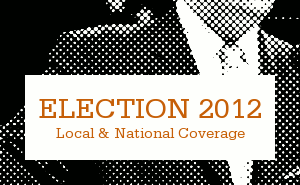A state Senate committee is considering a new bill that would eliminate primary elections for school board races, and omit those candidates’ party affiliations from general election ballots.
State Senator Andy Dinniman is the Democratic Chair of the Senate Education Committee and sponsor of the legislation. He said there are two reasons to remove partisan politics from school board elections.
“One is so you don’t have lame duck school boards making decisions that obligate the new board that comes in. Often, the lame duck board had been thrown out by the citizens in that primary,” said Dinniman. “The other problem is that political labels have nothing to do with education.”
The Chester County lawmaker said his measure has bipartisan support in the Senate, and he’s hopeful it can advance to the full chamber during this legislative session. Dinniman added that the Pennsylvania School Boards Association is “neutral” on the issue.
Steve Robinson of the PSBA said his group does not have a position on the legislation so far, because the consequences of eradicating primary school board elections have yet to be studied in full.
“The state should thoroughly review anything before moving too quickly to eliminate primaries, which could hurt the voters’ opportunities to really investigate the candidates that are running for school board, and that will make very important decisions in their communities,” said Robinson.
Senator Dinniman argued that the nonpartisan election process has been adopted by a majority of states with no ill effect. Dinniman said Pennsylvania’s current system has “scared away” talented people from running for school boards. He said it is intimidating to make one’s case before a local party committee when the candidate’s campaign has little to do with partisan politics.
He said the mixture of politics and education usually ends up hurting students.
“If a political party is paying the expense to getting you elected, then you have an obligation — perhaps, I should say, you have an obligation back to that party when issues come up,” said Dinniman.
New York and a few other states hold nonpartisan school board elections separately from other races, but Dinniman said that’s too expensive for Pennsylvania.
Senate Bill 327 also increases the number of nomination signatures required to run for school board, depending on the size of the district. Under the bill, candidates for the Pittsburgh Public Schools Board would need 200 signatures. Pennsylvania law currently requires candidates to gather just ten signatures to launch a campaign for any school board.






